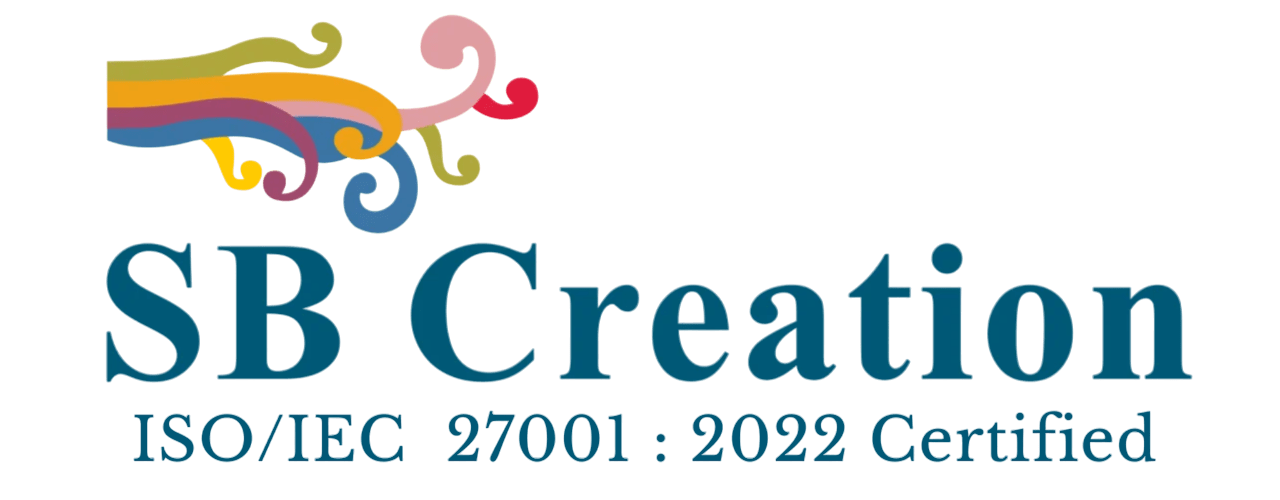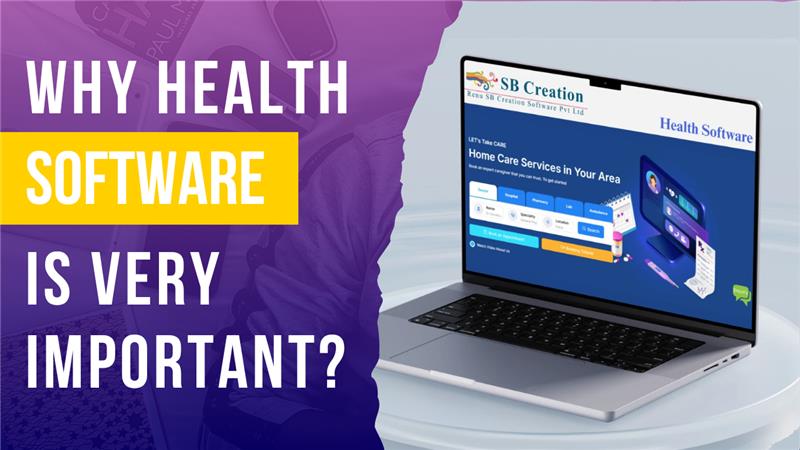Kolkata, India
- Address : 36 Ballygunge Gardens, Kolkata - 700019
- Contact No : +91 8777076816
- Support No : +91 8918796420
- Email : info@sbcreationgroup.com


In today's rapidly evolving healthcare landscape, health software has become a cornerstone of medical infrastructure. As the industry embraces digital transformation, health software empowers professionals to deliver faster, safer, and more efficient care. Whether you're a clinician, administrator, or patient, the benefits of adopting the best health software are undeniable.
This blog explores the importance of health software, its core benefits, key applications, and why selecting the right system is essential for modern healthcare delivery.
Health software refers to any digital tool or platform designed to support the delivery, administration, or analysis of healthcare services. It includes a wide range of systems, such as:
These solutions streamline clinical and administrative processes while enhancing patient engagement and data accuracy.
One of the biggest advantages of health software lies in its ability to streamline clinical workflows. Traditional healthcare systems often involve time-consuming paperwork, fragmented communication, and human error. The best health software minimizes these inefficiencies by automating repetitive tasks and centralizing data.
For instance, EHR systems allow doctors to access patient records instantly, track medical histories, and prescribe treatments digitally. Clinical decision support tools integrated into EHRs even alert practitioners about potential drug interactions, allergies, or diagnostic inconsistencies. These capabilities improve accuracy and free up valuable time for patient care.
Modern patients expect transparency, convenience, and autonomy in managing their health. Health software delivers these expectations through features like:
When patients engage actively with their care, outcomes improve. Health software facilitates this engagement by making healthcare more accessible, personalized, and continuous.
Accurate and secure data is vital in healthcare. Health software helps reduce errors, streamline communication, and ensure data integrity. When providers rely on handwritten notes or disconnected systems, information may be lost or misinterpreted. In contrast, digital systems:
Moreover, top-tier health software complies with HIPAA and other regulatory standards to ensure patient privacy and data protection. Built-in audit trails, encryption, and access controls add layers of security to safeguard sensitive information.
Healthcare professionals deal with vast amounts of data. Analyzing this data manually is neither practical nor efficient. Health software—especially those powered by AI and analytics—offers valuable insights to guide clinical and operational decisions.
Analytics tools can identify trends, predict patient risk, and measure performance metrics. Hospitals use this information to:
By transforming raw data into actionable intelligence, health software supports smarter, evidence-based decisions.
Care coordination is critical for patients with complex or chronic conditions who interact with multiple providers. Health software facilitates seamless communication between specialists, primary care physicians, nurses, and administrators.
Shared access to updated medical histories, test results, and treatment plans prevents duplication and ensures continuity of care. Some platforms even integrate care team messaging systems and shared task lists to keep all stakeholders aligned.
As care models shift toward integrated, value-based care, such coordination becomes increasingly important. Health software serves as the backbone of this collaboration.
Not all health software is created equal. To derive maximum benefit, healthcare organizations must select solutions tailored to their specific needs. When evaluating the best health software, consider these essential features:
By choosing the right software, you ensure a positive return on investment and sustainable operational improvements.
Health software is not just a technological upgrade—it’s a fundamental enabler of modern healthcare. It improves clinical accuracy, streamlines operations, engages patients, protects data, and supports better decision-making. As healthcare challenges continue to evolve, the role of digital tools will only expand.
Investing in the best health software allows providers to deliver safer, faster, and more coordinated care. In a field where every second and every detail matters, the right digital platform can make all the difference.
Healthcare institutions and professionals should not view health software as an optional add-on, but as a strategic necessity in delivering high-quality, patient-centered care.
15 December 2025
20 November 2025
03 November 2025
30 October 2025
09 October 2025
09 October 2025
15 September 2025
08 September 2025
02 September 2025
29 August 2025

Write A Comments
Your email address will not be published.